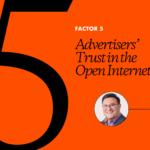Online communities across social media just aren’t working.
At least, that’s what the American public told us in our recent research with YouGov. We conducted a nationwide survey of more than 1,400 people to get to the bottom of a few important questions. We wanted to know:
- What motivates people to engage and talk online?
- How do they feel about the experience?
- And what does that mean for publishers looking to build a loyal community?
We’re thrilled to release the results of that initiative: our Online Communities Report, 2022. It’s a detailed portrait of Americans’ relationship with the internet right now—and in digging through the data, we uncovered a massive opportunity for leaders in publishing.
Social media has failed users. Publishers can pick up the slack.
If our report makes anything clear, it’s that the appetite for online community is bottomless: some 93% of Americans use social media, with 74% participating at least once a day. This is despite the fact that fully 64% of respondents view interactions on social media as generally unhealthy. In other words, people are engaging in community online regularly, but they’re not happy with it.
The time is ripe for an alternative—and that’s precisely the gap that leaders in the publishing space are rushing to fill.
72% of those polled said they believe publishers should host communities, and 91% reported reading the comments when they’re available on publishers’ sites. This eagerness probably stems from the fact that only 16% of respondents felt that social media communities are healthier than those hosted by publishers.
This is important. With wide swathes of users increasingly alienated by social media, publishers have a real opportunity to re-center conversation on their own domains. This is not just what users want but what we as a society need—i.e., the kinds of healthy community experiences that bring people together instead of dividing them.
This kind of community is indispensable in the media environment currently taking shape. Third-party cookies are on the way out; social traffic is less reliable than ever; and the demands on users’ attention and time increases exponentially each day. By bringing people back day after day—or multiple times per day—healthy conversation can help insulate publishers from these factors, and help them generate the first-party data they need to survive in the post-cookie future. It can help them build a future on their own terms.
For more on what makes readers tick, and the opportunity for publishers to leverage this moment in 2022, check out our report here.


